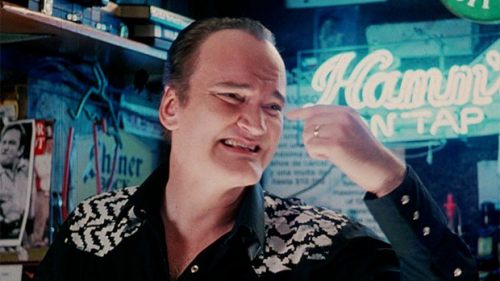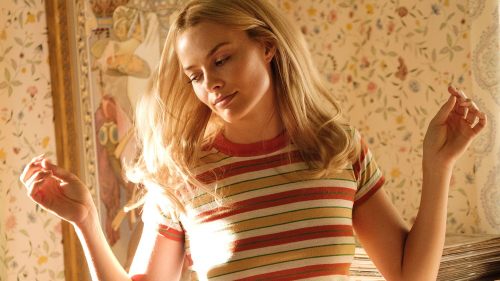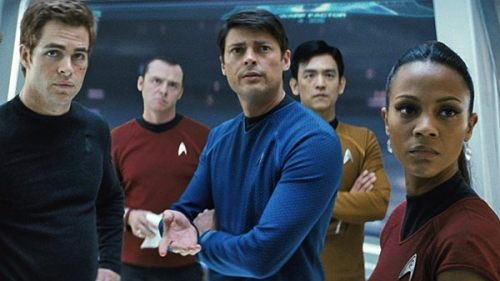From Slave To Superhero: The Django Supremacy
While it’s never easy to predict what will transpire narratively, any new Quentin Tarantino film comes with a reliable set of expectations. Dialog will sing; chronology and structure will play by their own rules. A lot of people are likely to get killed in a variety of shocking, sometimes hilarious ways.
Above all, however, you can rely on Tarantino to bring bright, new characters to the popular culture landscape, personalities that often stand as icons before you’ve even seen them in action. His career is full of them. His Reservoir Dogs and Pulp Fiction gangsters defined ‘90s cinematic coolness. While lacking pathos and deep inner-personalities, their by-design surface-level personalities were so strong, it felt like we’d all been waiting for them to arrive without even knowing it.
Tarantino then went in the opposite direction with his Pulp Fiction follow-up, Jackie Brown, a film filled with real, breathing humans struggling through decidedly uncool issues like missed love, the daily beatdown that comes with professional unhappiness, and the ravages of time and age. Nevertheless, every character in that movie, particularly Jackie, Ordell, and Melanie, remains unique and instantly recognizable. Switching to grown-up drama did not hurt Tarantino’s ability to create icons.
Then there’s Kill Bill’s the Bride, an almost perfect amalgamation of Tarantino’s many cultural obsessions. Beatrix Kiddo could get by just fighting everyone and looking cool - few would have complained - but Tarantino gives her a genuine humanity as well. The Kill Bill films’ biggest surprise, however, is how Tarantino manages to do the same for Bill, his villain. By the time Kiddo achieves her revenge, we’re not totally sure we want her to. Bill’s a charmer, and the mutual affection between him and Beatrix make his death in Kill Bill Vol. 2 much more emotional than we could have expected by the end of Kill Bill Vol. 1, where he was little more than an ominous voice.
Even when supplying a one-off character for a one-off film, Tarantino can’t help but create something memorable. Death Proof’s Stuntman Mike won’t go down as one of cinema’s greatest characters, but his macho murderer-turned wimpy supplicant is full of surprises and offers Kurt Russell - a guy already blessed with a number of iconic characters under his belt - with yet another unique and timeless persona.
With Inglourious Basterds, Tarantino’s career path evolves significantly. Rather than take place in the present, his films to follow are all period pieces. Instead of dealing with gangsters and relatively cartoonish villains, he chooses to look at historic and real forms of human evil. In terms of character creations, this changes his mode slightly. Basterds sports a large cast and an epic story that belies a typical and easy to identify main character. The primary narrative belongs to Mélanie Laurent’s fierce Shosanna, a strong but decidedly quiet character by Tarantino’s standards. With his throat scar, southern accent, and period mustache, Brad Pitt’s loud and garish Aldo Raine offers an extreme contrast to Shosanna’s minimalist presentation, something more along the lines of what we expect from Tarantino.
Filmgoers likely would have felt unfairly duped into watching a Brad Pitt movie with far less Brad Pitt than advertised if not for the film’s REAL breakout character, Christoph Waltz’s Col. Hans Landa. Charming, funny, disarmingly smart, and totally terrifying, every moment featuring Landa provides some form of tension, delivered almost exclusively through dialog. Landa’s evil is unprecedented for Tarantino, and he chooses to put that malice in a vessel so arresting we nearly forget we’re not supposed to like him. Aldo Raine is a classic Tarantino cartoon. Landa evolves that into something far more complicated and hard to pin down.
Which brings us to Django Unchained, a film that matches Tarantino’s new narrative scope with a far greater concentration of character than we saw in Inglourious Basterds. Having already seduced us with an evil Christoph Waltz in that film, Tarantino now invites us to embrace the actor fully in a heroic role filled with warmth rather than malice. As bounty hunter Dr. King Schultz, Waltz frees the slave Django from the clutches of slavery, first for his own personal gain, but later as a free man and - should he choose - a business partner (not at a 50/50 split, mind you). Schultz teaches Django how to mix with white society. He invites Django to make choices for himself. He trains him to be a superior killer. He even takes it upon himself to help Django free his beloved wife, Broomhilda von Shaft.
But the story is not about Schultz. Due to Waltz’s charm and warmth - but above all his loquaciousness next to Django’s relative silence - Tarantino invites us to see Schultz as the film’s main character, or an uncomplicated hero in the very least, which is why so many have a hard time accepting the importance of Django’s last half hour (this misreading is reportedly also one of the reasons Will Smith turned down what he saw as a secondary role).
The existence of that last half hour, however, should be a huge signifier that this is Django’s movie and his alone. Multiple viewings bear this out. Tarantino designs this revelation as a sneak attack, not to be cheeky or ironic, but because doing it this way both complicates Schultz into something far more delicious than a mere ‘nice guy’ and transforms Django into an absolute titan among Tarantino characters.
Django’s first act in Django Unchained is to be saved by someone else. For a hero, that’s a rough foundation. Schultz gives him his first beer, after which Django watches his new benefactor murder an authority figure without any fear of impunity. At this point, Django is still a mere observer. But the key to Django - the thing that makes him a character with such a powerful arc - lay in the way he absorbs absolutely everything he sees and almost instantly adapts it according to his own idiom in service of his own agency. Schultz needs him to identify the three Brittle brothers. That’s it. Having seen how Schultz’s status as a bounty hunter shields him from the legal ramification of murdering wanted outlaws, Django does not hesitate to murder two of the Brittle’s himself in full view of everyone on the plantation (he even invites an audience of slaves to watch). The law is on Django’s side. He knows it and doesn’t back down from pushing that as far as possible. He does this the whole movie. He pushes Schultz. He pushes Candie. He pushes Candie’s henchmen and even his slaves.
As Django Unchained progresses, two things come into focus. First, Django and Schultz’s relationship shows elements of a mentor/student situation - and Schultz may even see it like that, patting himself on the back for every favor he pays Django - but it’s really more a matter of two equals working together to their mutual benefit. Second, ‘equals’ might be pushing it. The more Schultz speaks, the more we realize how calculated and precise Django’s few utterances are. Schultz, with his grand showmanship, ultimately presents the greatest danger to Django’s mission to save Broomhilda. Remember, there could be a version of this story in which Schultz pays top dollar for Broomhilda and the whole crew leaves Candie’s plantation, bruised but alive. Instead, a petulant Schultz throws away everything - his, Broomhilda, and Django’s life for all he knows - for the immature pleasure of shooting Candie.
It’s a shocking moment, not the kind of narrative left turn most films would even consider. But Tarantino knows what he’s doing. With Schultz suddenly out of the picture, Django finds himself surrounded by a sizable staff of Southern plantation workers who have been itching to kill him since he arrogantly arrived dressed to the nines and riding a horse. He could not possibly be in a worse spot. Here we finally see the Django Tarantino has been saving for us - not the poor fellow in a tight spot but the all-out superhero doling out the vindictive wrath befitting an entire culture of dehumanization and cruelty.
This is where Tarantino’s pulpy coolness comes into play. As Django battles his way through Candie’s staff, bullets do not adhere to the laws of reality. They hit bodies like cannons, blowing huge blood geysers into their victims, some of whom get knocked across whole rooms by their force. Django survives one big gun battle, leaves a prisoner, uses his wits to get free, comes back, and finishes the job once and for all, not leaving until Candie’s mansion has been reduced to ash. He’s unstoppable and unflappable, a killing machine with a killer sense of style. Yeah, he just blew up a massive plantation in the middle of Mississippi, but he still has time to make his horse bow to his lady.
Django’s heroics supply the culmination of an epic journey from slave to icon, an unprecedented arc from Tarantino. Schultz, while a great character to be sure, is merely a part of Django’s superhero origin story. Just as Candie - our marquee villain - displays antagonism that lacks the wit and guile of his faux-humble servant, Stephen, Shultz’s charisma and volume hides the fact that he is merely the facilitator of Django’s ascension.



